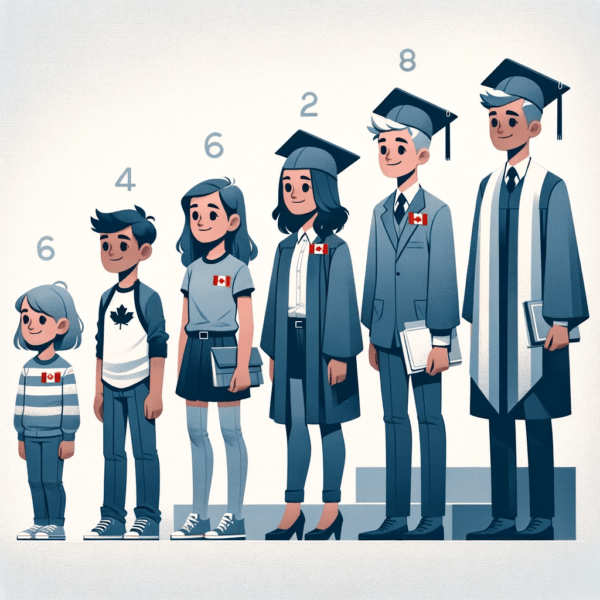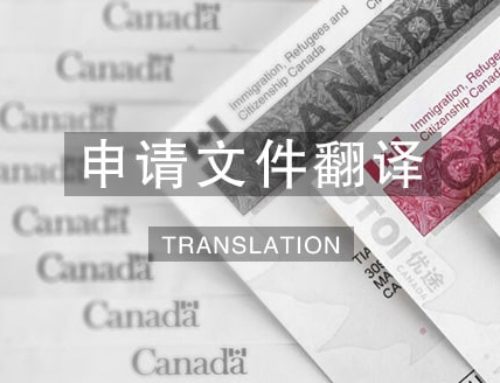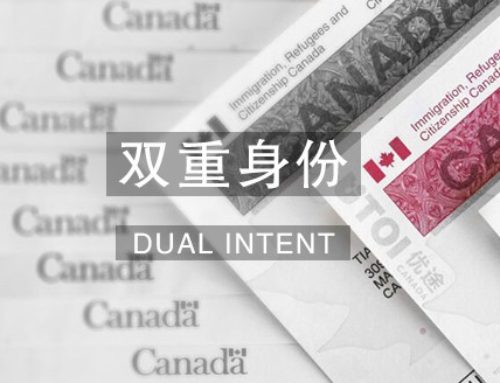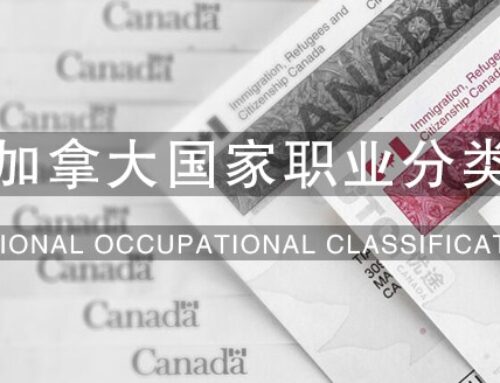学历等级 Levels of Study
加拿大留学实用工具 Study in Canada Tools
文章内容 Table of Contents
小学及中学教育 Elementary & Secondary Education
加拿大法律规定所有适学儿童都需要自五或六岁起,直至年满16周岁接受教育。加拿大的教育体系自小学起至高中毕业共由12个等级组成。完成12年级即可获得高中文凭,进而可以选择进入大学或学院接受专上高等教育。
加拿大的小学及中学教育体系,由私立学校和公立教育局组成。私立学校可能拥有更具竞争优势、专业水平更高的教学项目与教育资源,但通常对学生收取学费。公立教育局下辖的公立学校则由加拿大政府全额资助,向学生免费提供政府规定的课程。加拿大的学生只有获得高中毕业证后才有资格进入大学或学院深造。如果外国公民希望进入加拿大的大学或学院就读,也需要拥有与加拿大高中毕业证同等的高中学历。加拿大私立初高中申请及转学服务
All children in Canada are required by law to attend school. Schooling for children begins at the age of five or six and continues at least until the child is 16. The school system for Canadian children begins with elementary school and progresses to high school (or secondary school). This system is composed of twelve grades. Once a person completes Grade 12, they receive their high school diploma which makes them eligible for post-secondary education (college and university).
There are both private and public schools in Canada’s schooling system. While private schools may have specialized curriculums, programs, and resources, they often charge annual tuition rates for students. Public schools are fully funded by the Canadian government and teach government-mandated curriculums to their students. A Canadian student only becomes eligible to attend college or university once they receive their high school diploma. If a foreign national wishes to attend college or university in Canada, they should be able to demonstrate that they possess a high school diploma as well. Apply Canadian schools.
专上教育的不同类型 Types of Post-Secondary Education
任何在加拿大教育系统中12年级以上的教育项目都被划归为中学后教育,即高等教育。以下接种不同的高等教育类型,都秉持不同的教育目的。
Any educational program occurring at a level above the twelve-grade elementary and secondary school system is considered post-secondary education. There are a few different types of post-secondary education each with different purposes.
大学 University
大学是被授权可以向其毕业生授予学位的高等教育机构。每所大学都会开设学士学位课程,许多大学还会提供硕士或博士学位课程。大学本科申请及转学服务
A university is a post-secondary educational institution which is authorized to grant degrees. Every university offers Bachelor’s Degree programs, and many also offer Master’s Degree programs and PhD programs. Read more
学院 College
除个别情况外,加拿大的学院是指不能授予其毕业生本科及以上学位的高等教育机构。与大学相比,加拿大的学院通常提供直接以职业发展为导向的证书或文凭课程。学院毕业生毕业后,将掌握例如平面设计、烹饪、汽修等诸多更具实操价值、更易使其就业的技能。学院还会开设包括语言课程在内的很多提高个人技能或就业能力的课程。此外,许多学院还会开设诸如木工、焊接等行业的培训课程或学徒制项目。加拿大学院申请及转学服务
A college is a post-secondary educational institution which cannot grant degrees, though there are some exceptions to this. Instead, they usually offer programs resulting in certificates and/or diplomas. In general, college programs are more directly career-oriented when compared to universities. A college graduate may complete hands-on, practical training in an employable skill, like graphic design or culinary skills. Colleges often have courses to improve a person’s skills and employability, such as language training. As well, many colleges have training programs or apprenticeships in skilled trade occupations like carpentry or welding.
专职学校或学徒项目 Trade School/Apprenticeships
熟练工指代一种专门的职业,通常强调某一领域某种形式的体力劳动。在加拿大成为熟练工一般需要接受包括实操性培训在内正规教育,但鲜少需要拥有本科学位。因此,熟练工培训一般由学院或职业学院下设的专职学校提供。接受足够多的培训以后,希望在职业领域有所发展的熟练工可以成为学徒,在与富有经验的师傅共同工作的过程中提高技艺。
A skilled trade refers to a specialized occupation, usually emphasizing some form of manual labour, which requires hands-on training and formal education. A skilled trade rarely requires a Bachelor’s Degree, so education in the trades usually occurs through trade schools, which are often smaller programs contained within colleges or vocational schools. As well, once an aspiring tradesperson has sufficient training, they may undertake an apprenticeship. As an apprentice, the student works closely with an experienced tradesperson to refine their skills in the trade.
职业学院 Vocational School
加拿大的职业学校,可能同时提供中学水平或专上水平教育课程。因此,申请人无需一定要拥有高中文凭才能进入职业学习学习。职业学校提供的课程旨在教授学生完成特定工作岗位日常任务的所需技能,为协助学生毕业后直接进入劳动力市场中的技术岗位或低技术岗位做好准备。
教育界应用不同的术语针对高等教育阶段的不同教育机构进行描述。这些术语在世界范围内所表达的意思不尽相同,因此「学院」一词在加拿大和法国指代的教育机构有所不同。此外,这些术语所表达的教育机构也可能有所重叠。例如「学院」可以指与大学相关联的下属学院,或指代学院内部的职业学校。
A vocational school may have educational programs at either the secondary or post-secondary level, so it is not always necessary to have a high school diploma in order to attend vocational school. Vocational programs teach students the technical skills required to perform the tasks of a specific job. These programs prepare students to enter directly into the workforce, either in skilled or low-skilled occupations.
While there are separate terms for different types of schools at the post-secondary level these terms mean different things in locations around the world, so a college may refer to one type of school in Canada but something different in France. As well, sometimes these schools overlap, there can be colleges associated with universities, or trade schools within colleges.
加拿大的副学士学位 Associate Degree in Canada
在某些国家,副学士学位通常是指,在学院或大学中完成为期两年的学习课程后被授予的本科学位。加拿大仅有英属哥伦比亚省提供副学士学位课程,国际留学生在英属哥伦比亚省完成为期两年的副学士课程后,可以转入学士课程的第三年继续就读。除英属哥伦比亚省以外的加拿大其他省份,只提供为期一年或两年制的证书或文凭课程。完成课程并满足相应条件,也有机会转入学士学位课程继续深造。
In some countries, an associate degree refers to an undergraduate degree awarded by a college or university upon completion of a course of study which is usually two years in length. The only province in Canada to offer associate degrees is the province of British Columbia, where a student can complete a two-year associate degree allowing students to then enter a Bachelor’s Degree program at the third year of study. Outside of the province of British Columbia, associate degrees are not available, though other provinces do offer one- and two-year certificates and diplomas that can sometimes be transferred into Bachelor’s programs.
本科及研究生教育 Understanding Undergraduate vs Graduate Education
加拿大的大学开设不同的学位课程,所有的学士学位课程都被认为是本科课程。作为一般性通识教育,本科课程专注于某个领域,而非针对某个课题进行专业性研究。相比之下,加拿大的硕士或博士课程被认为是研究生教育。研究生课程或项目,通常具有规模较小、高度专业化,以及强调研究性的特点。
Within a university, there are different levels of degrees. All Bachelor’s Degree programs are considered to be undergraduate programs. An undergraduate program is a more general program of study, focused on a certain field but not necessarily specializing in a certain topic. In contrast, a Master’s or PhD level program is considered graduate education. Graduate programs are usually much smaller, highly specialized programs which emphasize research.
文凭与证书的不同 Understanding Certificate vs Diploma vs Certificate
文凭与证书课程的主要不同,在于课程长度。这两个等级的教育都为学生提供直接进入某特定领域的职业化培训。获颁证书通常需要学生在学院或职业学院中完成一年时长的全日制学习,而获颁文凭通常需要在学院或职业学院完成两年时长的全日制学习。一些教育机构还提供高级学院文凭,要求学生在毕业前完成至少三年的全日制学习。
The difference between a diploma and a certificate is the length of the program. Both of these levels of education provide students with training for entry directly into a specific occupation. A certificate generally requires one year of full-time study at a college or vocational institute while a diploma generally requires two years of full-time study at the same type of institute. Some schools also offer advanced diplomas, which require the completion of at least three years of full-time study.
魁北克省学历等级 Levels of Education in Quebec
除魁北克省以外的其他加拿大省份的小学和中学教育,都由12个年级组成。学生完成12年级后即可从中学毕业并获得高中文凭。学生只有在完成中学教育后,才有资格接受专上高等教育。魁省教育体系的运作方式略有不同。
魁省的小学和中学教育由11个年级组成,完成11年级后学生即可获颁高中文凭。但是魁省的中学与专上高等教育间还有另一种学历等级,即普通与职业教育学院(CEGEP)。学生在普通与职业教育学院可以选择两年制大学预科课程或三年制职业教育课程,毕业后获颁学院毕业证书(DEC)。魁省的普通与职业教育体系分为两个分支:
- 大学预科:两年制的课程,旨在为毕业生未来继续在大学深造做出准备。
- 技术职业:三年制的课程,旨在为毕业生立即进入劳动力市场做出准备。
魁省学生只有在完成普通与职业教育课程后才有资格进入大学学习本科课程。需要注意的是,对于魁省学生而言,一般只需三年的全日制学习即可获得学士学位。而在其他省份,一般需要四年全日制学习才能获得学士学位。
In every province of Canada except for Quebec, elementary and secondary school is made up of the twelve-grade system. After a student completes Grade Twelve, they graduate from secondary school and receive a high school diploma. Only after completing high school will, they become eligible for post-secondary studies. Quebec’s education system operates in a slightly different manner.
In Quebec, elementary and secondary school is only made up of eleven grades. Once a person completes Grade Eleven, they receive their secondary school certificate. However, Quebec has another level of education between secondary school and undergraduate university programs. This level of education is called CEGEP (Collège d’enseignement général et professionnel). CEGEPs are educational institutions that allow students to select a program of specialization which leads to a Diplôme d’études collégiales (DEC). In the CEGEP system there are two types of programs:
- Pre-University: These programs are two years in length with the purpose of preparing a student to continue onto a university program.
- Technical: These programs are three years in length with the purpose of preparing a graduate to immediately enter the workforce.
Students in Quebec are only eligible to begin an undergraduate university program after completing a CEGEP program. However, it should be noted that for Quebec students, a Bachelor’s Degree usually requires only three years of full-time study, where the rest of Canada requires four years of full-time study to receive a Bachelor’s.







